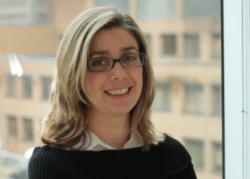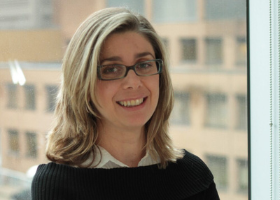
Sara Vasconcelos, PhD, University Health Network
Recycling Fat Blood Vessels to Heal Hearts
Cell transplantation has the potential to regenerate organs after damage caused by various diseases and acute health events, such as heart attacks. However, for cells to survive transplantation and effectively regenerate organs, they need immediate access to oxygen and nutrients from blood vessels. Many past attempts at making new blood vessels for organ regeneration have failed.
Dr. Sara Vasconcelos, a scientist at the University Health Network in Toronto, has been researching ways to overcome this roadblock, with a focus on generating alternative therapeutic avenues to treat cardiovascular diseases. Heart disease affects 1.3 million Canadians, and the Heart and Stroke Foundation reports it is the costliest disease in Canada, totaling $21.2B in health care expenses and lost earnings. This is why the work of Dr. Vasconcelos and her team is so important.
She and her team are already making significant strides in their work, which has exciting implications for cell-replacement therapies. For the first time, they have shown an effective means to support cell survival and improved organ function in small animal models, such as rats, by recycling blood vessels from fat to support the survival of transplanted cells.
The next steps in Dr. Vasconcelos’ research are to advance this work using a large animal model and to generate the necessary efficacy and safety data to eventually move this therapy into clinical trials. If successful, this research will be a game-changer for millions of people.

